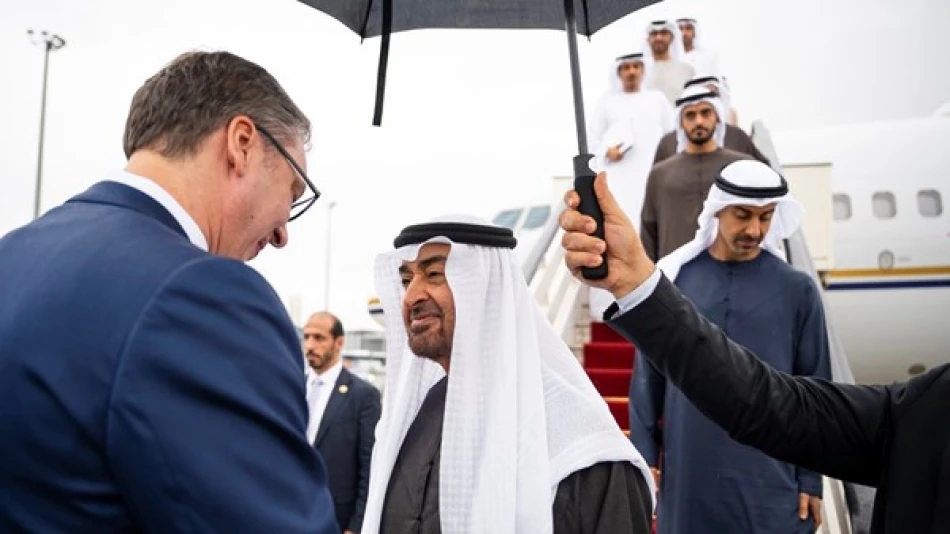
UAE Leader Emphasizes Commitment to Strengthen Developmental Ties with Serbia
UAE Deepens Balkan Strategy as Sheikh Mohamed Reinforces Serbia Economic Partnership
UAE President Sheikh Mohamed bin Zayed Al Nahyan met with Serbian President Aleksandar Vučić in Belgrade to advance their comprehensive economic partnership agreement, signaling the Emirates' continued expansion into European markets amid shifting global trade dynamics. The high-level diplomatic engagement underscores Abu Dhabi's strategic pivot toward diversifying economic partnerships beyond traditional Gulf allies.
Strategic Partnership Takes Center Stage
During the Belgrade meeting, Sheikh Mohamed emphasized the UAE's commitment to developing developmental relations with Serbia, focusing on implementing objectives outlined in their comprehensive economic partnership agreement. The discussions centered on enhancing the strategic partnership between both nations, with particular emphasis on mutual development benefits.
The UAE leader highlighted his country's approach of "building bridges of cooperation that achieve everyone's interests," reflecting a broader diplomatic strategy that has seen the Emirates emerge as a key mediator and economic hub in recent years.
Economic Implications for Regional Trade
Market Access and Investment Opportunities
This partnership positions the UAE as a gateway for Serbian businesses seeking access to Middle Eastern and Asian markets, while offering Emirati companies entry into European supply chains through Serbia's strategic location. For investors, this represents potential opportunities in logistics, manufacturing, and technology sectors where both countries have complementary strengths.
Serbia's position as a non-EU member with favorable trade agreements across multiple regions makes it an attractive partner for the UAE's diversification strategy, particularly as global supply chains continue to reshape following recent geopolitical tensions.
Comparative Regional Strategy
The UAE's engagement with Serbia mirrors similar partnerships the Emirates has cultivated with other strategically positioned nations. This approach parallels Singapore's model of building economic bridges across different regions, leveraging geographic and regulatory advantages to create trade hubs.
Unlike traditional Gulf partnerships focused primarily on energy and defense, the UAE-Serbia relationship emphasizes comprehensive economic cooperation, including technology transfer, manufacturing, and services sectors.
Broader Implications for UAE Foreign Policy
This diplomatic engagement reflects the UAE's evolved foreign policy approach under Sheikh Mohamed's leadership, prioritizing economic pragmatism over ideological alignments. The strategy has proven successful in positioning the Emirates as a neutral ground for international business and diplomacy.
For Serbia, deeper ties with the UAE offer economic diversification opportunities and potential investment in infrastructure projects, areas where Emirati sovereign wealth funds have demonstrated significant capacity and interest globally.
The partnership also represents a practical example of how middle powers can leverage their unique positions to create mutually beneficial relationships that transcend traditional regional boundaries, potentially serving as a model for other similar collaborations in an increasingly multipolar world.
Most Viewed News

 Layla Al Mansoori
Layla Al Mansoori






